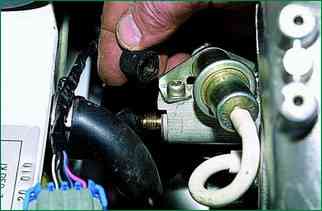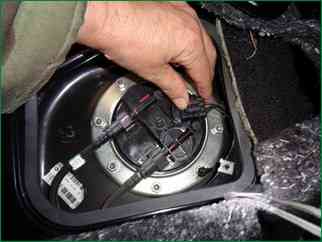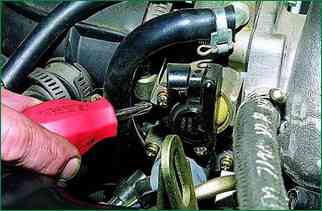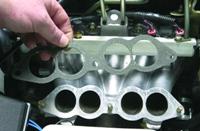In relation to a car, a jerk is a short-term spontaneous change in the engine speed, regardless of the position of the gas pedal
In everyday use, as a rule, there are a series of jerks.
The limiting case of jerk is a dip, a perceptible delay in the engine's response to pressing the accelerator pedal.
Three types of jerks can be conditionally distinguished:
- – at the moment of the beginning of the movement;
- – during overclocking;
- – with steady motion, i.e. at a constant position of the accelerator pedal.
To determine the causes of jerks when driving a car with an injection engine, special diagnostic equipment is required, therefore, in this case, we recommend contacting a car service that specializes in repairing fuel injection systems.
As practice shows, in most cases, jerks are caused by insufficient fuel pressure in the engine fuel line ("rail") or a malfunction of the throttle position sensor.
If you have some skills, you can identify the cause of jerks yourself.
Dash at start of movement
At the moment of the beginning of the movement, the limiting case of a jerk occurs more often - a failure.
The most unpleasant sensations are connected precisely with the delay in the engine's response to pressing the "gas" pedal.
Sometimes the engine will even stall.
A jerk occurs at the moment the throttle valve starts to open, when, according to the signal from the throttle position sensor, the ECU determines the moment of transition from idle to load mode and should increase the amount of fuel supplied through the injectors.
If there is insufficient pressure in the fuel line, even with an increase in the injection duration, there is not enough fuel for a smooth start.
To check the fuel pressure value, connect a pressure gauge with a measurement limit of 10 kgf / cm 2.
to a special fitting on the fuel line using a piece of a suitable hose.
When the engine is running, the pressure in the fuel line must be at least 3 kgf / cm 2.
The pressure test fitting is similar in design to the wheel tire valve, with a spool.

Therefore, you can use the hose end of a foot tire pump to connect the pressure gauge hose.
The reasons for the decrease in pressure can be:
- faulty fuel pressure regulator.
Also, regulator failure can be caused by a loose hose fit on the regulator vacuum chamber fitting;
- clogged fuel filter;

- faulty fuel pump
Jerking during acceleration
The cause of jerks during acceleration may be, as in the previous case, insufficient fuel pressure in the fuel line.
The ECU, having received a signal from the throttle position sensor about the intensive opening of the damper at a large angle, seeks to maximize the fuel supply, but is not able to do this due to low fuel pressure.
For the reasons for this phenomenon and how to check it, see "Jerk at the moment of the start of movement".
Jerks in steady motion
Such jerks are most often caused by a malfunction of the ignition system. Diagnostics and repair are required (see "Diagnostics and fault codes for the Niva Chevrolet ECM with the ME17.9.71 controller").
On the way, you can try to do it yourself:
- carefully inspect the engine compartment.
Turn off the ignition and check the reliability of attachment and fit of all wires and connectors at the ignition module and high-voltage wires.
Start the engine and listen to its work - crackling during the breakdown of high voltage "to ground" is weak, but distinct.
In complete darkness, a spark is clearly visible during breakdown;
– replace spark plugs regardless of their condition and mileage.
Pay attention to the condition of the spark plugs - if it is abnormal, you may need to repair the engine or its systems.

A specific cause of jerking during steady motion of a car with an injection engine may be damage to the throttle position sensor.
Before Additional symptoms confirming the malfunction of this sensor are:
- - uneven engine idling;
- - reduction of the maximum engine power. The sensor is not collapsible and therefore not repairable. If a sensor malfunction is detected (see "Engine management system"), it is replaced as an assembly.
Jerking during acceleration
The cause of jerks during acceleration may be, as in the previous case (see "Jerk at the moment of starting the movement"), insufficient fuel pressure in the fuel line.
The ECU, having received a signal from the throttle position sensor about the intensive opening of the damper at a large angle, seeks to maximize the fuel supply, but is not able to do this due to low fuel pressure.
For the reasons for this phenomenon and how to check, see "Jerk at the start of movement".











